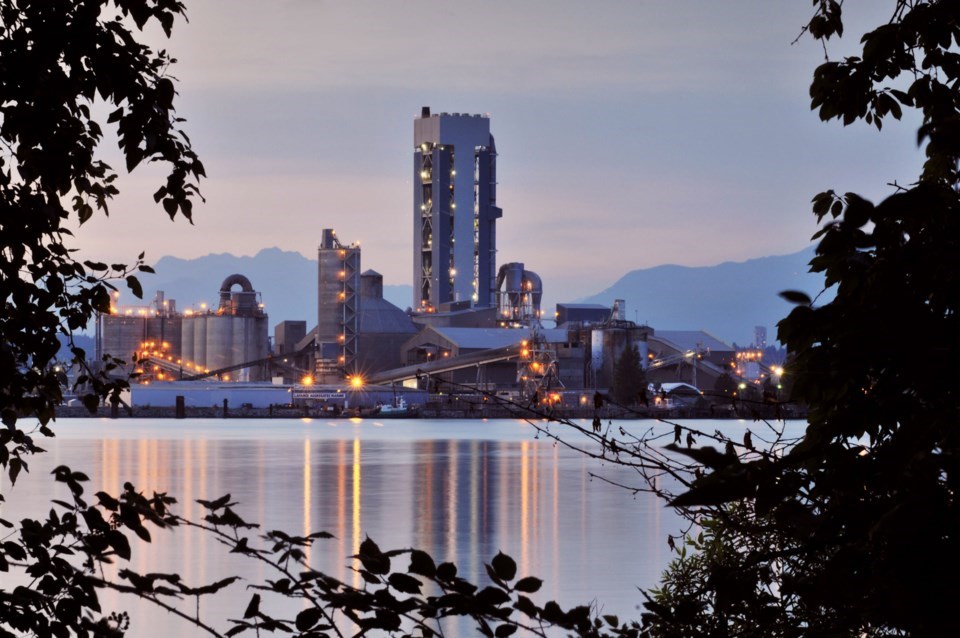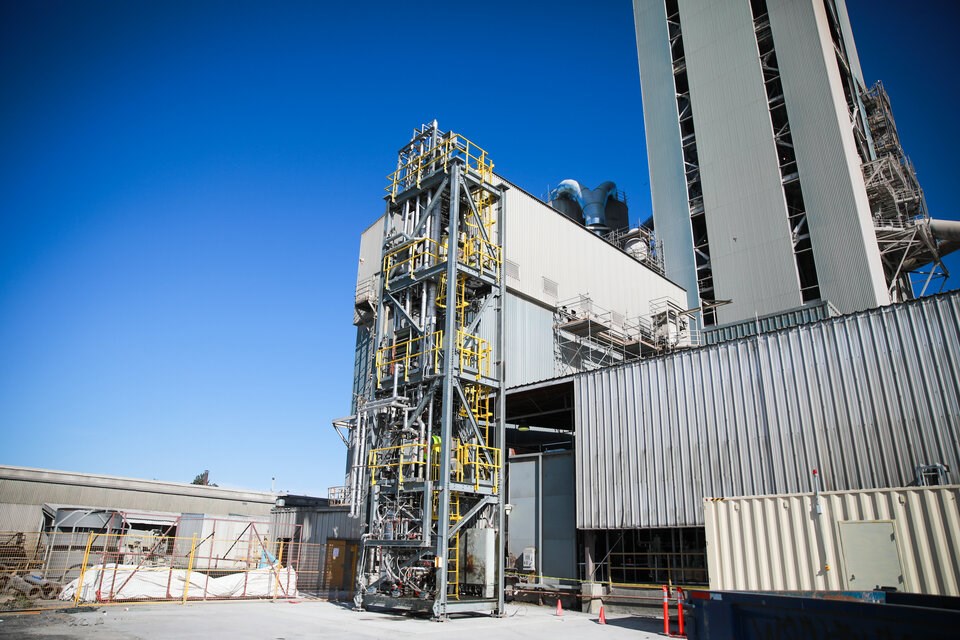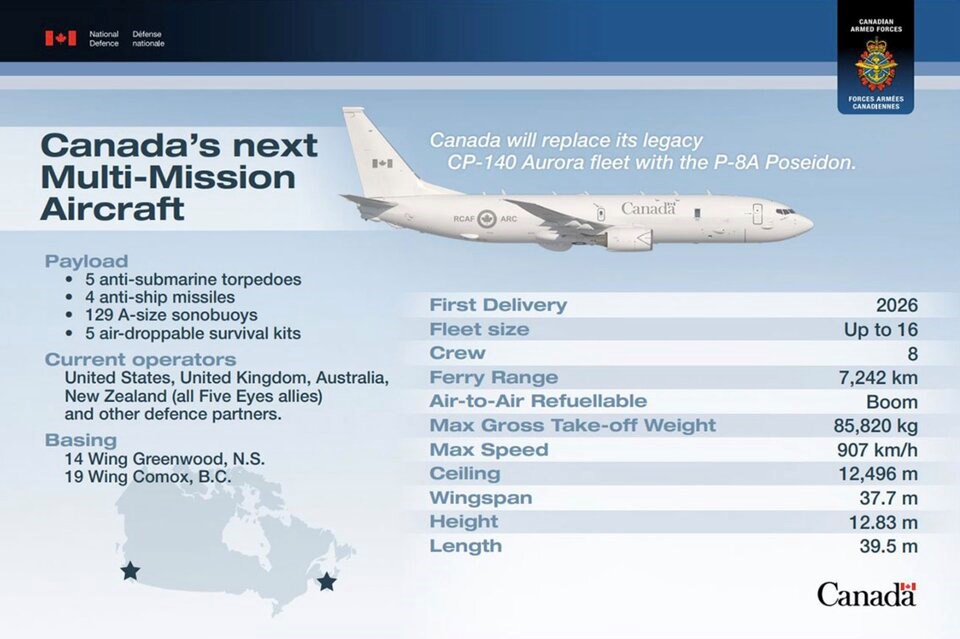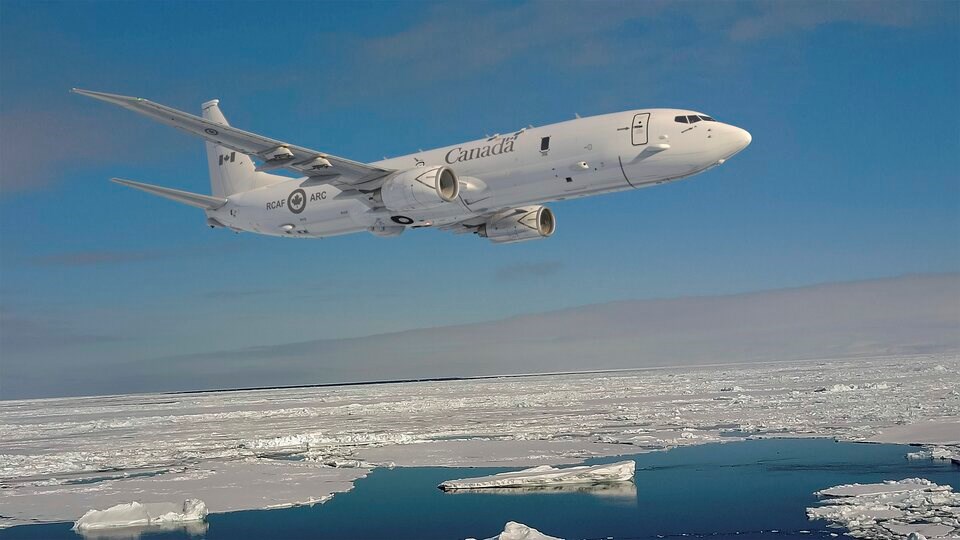Boeing Canada says it’s investing millions of dollars into business ventures in B.C. and Quebec with the eventual goal of producing close to 200 million litres of sustainable jet fuel every year.
The announcement, made Wednesday, includes nearly $17.5 million split between two projects looking to turn wood waste and carbon captured from industrial smokestacks into sustainable aviation fuel.
The fuel, known in industry as SAF, has the potential to reduce carbon emissions by up to 80 per cent over its lifecycle and “offers the fastest route to decarbonization in the aviation sector,” according to Boeing.
Boeing's latest investment will direct $10 million to Project Avance, a joint venture between Bioenergie AECN and Alder Renewables in Port Cartier, Que. The project aims to convert wood residue from sawmills into low-carbon bio-crude that can later be converted into almost 38 million litres of unblended jet fuel every year.
In B.C., Dimensional Energy will receive $7.5 million to scale up its industrial CO2 capture operations and eventually quadruple the Quebec project's output of synthetic aviation fuel.
“We’ve always envisioned doing the scale-up in British Columbia,” said Dimensional's CEO Jason Salfi. “With the uncertainty in the U.S. right now, it seems like a great time to double down on our work there.”
Replacing an 'enormous' volume of jet fuel
Between 2000 and 2019, the aviation industry’s emissions grew faster than rail, road or shipping, only dipping at the end of that period when the COVID-19 pandemic caused air traffic to plummet. But by 2023, the industry had recovered to more than 90 per cent of pre-pandemic flights.
At a global level that year, commercial flights produced 950 megatonnes of carbon pollution — or 2.5 per cent of that year’s global emissions, according to the International Energy Agency (IEA).
Commercial aircraft emissions are expected to surpass their 2019 levels in 2025, once again growing year over year, according to the IEA.
Meanwhile, Canada’s aviation industry consumed about eight billion litres of turbo jet fuel in 2023, according to Statistics Canada. That ranks the country 11th globally, one index says.
Boeing Canada president Al Meinzinger said that while country’s jet fuel needs are “significant,” they require more than new technology.
That’s why a decade from now Meinzinger said he expects the aviation industry to make much of its emission reductions through increased operational efficiencies — perhaps by taxiing aircraft less, improving flight plans or by replacing old aircraft with newer less fuel-hungry engines and air frames.
“Obviously, it matters how much we're consuming,” he said.
Chris Lohmann, Boeing’s sustainability lead for Canada, acknowledged the total volumes that go into aviation are still enormous. He said the latest investments were about trying to fine tune the engineering of sustainable jet fuel and get its production up to scale.
Lohmann said Canada's large forestry industry and industrial emissions base offers the country a chance to play a big role in the manufacturing of sustainable jet fuel.
“Canada has every right to step in and be an energy superpower here,” said Lohmann. “We're really excited to see that.”
Long-term bet on B.C.
Dimensional Energy was founded in New York State in 2016 when a group of Cornell University professors collaborated to find a way to create sustainable fuels. After a successful pilot project at a power plant in Gillette, Wyo., in 2020, the company set up its research and development operations in Arizona, where today it pumps carbon dioxide into an experimental reactor.
Instead of releasing CO2 into the air, Dimensional’s technology turns captured industrial carbon pollution into recycled barrels of oil. The idea is to create a net-zero fuel that doesn’t make climate change worse.
Today, the company operates its only industrial pilot facility at the Lafarge Canada cement plant in Richmond, where it partners with the Burnaby-based carbon capture technology company Svante Inc.
“Everything we tested in Arizona, we moved up to British Columbia,” said Salfi.
Synthetic oil from that reactor has been used to make a number of products, from non-combustible industrial lubricants to waxes for surfboards and the cosmetic industry. But as a pilot project, its capacity remains extremely limited, producing only one to two barrels of oil a day.

Boeing’s pre-capital investment seeks to change that, allowing Dimensional to accelerate a preliminary engineering study designed to cost out every aspect of building a much bigger facility — from the nuts and bolts all the way up to labour requirements, off-take agreements and the reactors themselves.
Such a facility could capture 3,000 barrels of oil per day, enough to create 151 million litres of recycled carbon jet fuel a year, according to the company. It would also likely cost several hundred million dollars to build, though Salfi says at least three big investors are already waiting for the results of the study, expected to wrap up in mid-2026.
“These are folks that would write $100-million cheques,” he said.
If the money comes through, the CEO said Dimensional’s next step would be to find a suitable 20 to 25-acre site — preferably next to a heavy emitter, or if that's not possible, a site that could receive captured and cryogenically liquefied CO2 shipped by rail or barge.
“We look to be that output for the pulp and paper and the cement industry,” said Salfi. “They need a place to put all that carbon. We want to be that hub.”
Salfi, whose company is incorporated in Canada, said Dimensional has every intention to stay in B.C. because of its friendly regulatory framework for clean technology companies. At the same time, he said, B.C. doesn’t have a lot of places to store captured CO2 in the ground, unlike Alberta. That, he said, presents an opportunity.
“It could just snowball,” said the CEO.

Investments linked to military contract
Boeing's B.C. and Quebec investments are in response to the Canadian government’s November 2023 decision to acquire up to 16 Boeing P-8A Poseidon aircraft.
Set to be Canada’s newest generation multi-mission aircraft, the Poseidon is capable of advanced anti-submarine and anti-surface warfare; conducting intelligence, surveillance and reconnaissance missions; and providing search and rescue and disaster relief, according to Boeing.
Boeing Canada says it has now invested more than $280 million in Canadian clean technology projects through the Poseidon aircraft program and more than $2 billion in contracts related to its acquisition.

Boeing cited an independent study from Ottawa-based Doyletech Corporation that found the acquisition of the Poseidon aircraft will generate almost $358 million in annual economic benefits to Canada.
Last year, as part of Canada's procurement requirement around the P-8A, Boeing put $48 million into developing complex modelling and machine learning techniques to increase aircraft performance at the aviation company's Vancouver headquarters.
Another $13 million was invested in the Indigenous-owned, Parksville-based company COTA Aviation to build up a hands-on aerospace manufacturing training facility.
While linked to a military contract, the latest investments to build up sustainable fuel capacities are meant to provide fuel to both the Royal Canadian Air Force and the country's commercial aviation sector.
The aircraft are slated to be based out of the Royal Canadian Airforce's 14 Wing in Greenwood, N.S., and 19 Wing in Comox, B.C.



